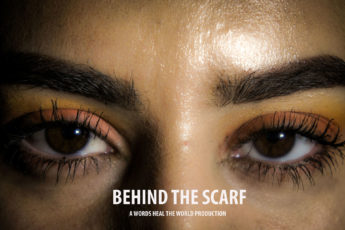
In the 21st century, Latin America maintains cultural and political barriers that hinder the achievement of equality and inclusion of the LGBTI community, according to the most recent report of the Inter-American Commission on Human Rights (IACHR).
Homophobia is a problem that has been affecting the region in recent years. In many countries being homosexual means being exposed to human rights violation. According to IACHR, only between January 2015 and March 2016, almost 600 people died in Latin America due to violence against the LGBTI population.
According to the report entitled “Violence against LGBTI people in the Americas” published by the IACHR in 2015, the situation in Latin America is “contradictory”. Although in these countries they have some of the most progressive legislation on equality and protection of the community, the rates of violence against this minority are still high.
Currently, one of the most significant challenges is the absence of enough statistical studies on violence against members of the community. Despite the lack of official data, numbers registered by civil society organisations are alarming.
The study conducted by IACHR in partnership with other organisations reveals that violence against LGBTI people is increasingly extreme. In some cases, they have been tortured before being killed and crimes often go unpunished. For example, in 2017, 340 people from the community were murdered in Brazil, 11 people in El Salvador, 7 human rights activists in Honduras and 8 people in Colombia.
The International Lesbian, Gay, Bisexual, Trans and Intersex Association (ILGA) ensures that the global situation of LGBTI people “is worrisome”. “Despite the fact that the number of laws that criminalize sexual practices between the same sex has increased, persecution and strong stigma persist in many countries.”
Respect, inclusion and tolerance
More informed societies are eventually more tolerant, which is key to coexistence.
“Homophobia is the weapon used to persecute those who dare to leave the heterosexual norm. Homophobes are ‘the armed wing’ of an intolerant society that perceives themselves as people carrying out a task of ‘moral sanitation” said Luiz Mott, Brazilian anthropologist, sociologist and activist during the Presentation of the II National Meeting Sexual Dissidence and Sexual Identities policies in 2005.
In this context, for UNESCO, education transforms lives and plays an important role in our society. Based on this, it is important to define that educating ourselves will help us to modify beliefs and diminish acts of homophobia in Latin America that are becoming increasingly extreme.
Some of the laws that have been passed allow same-sex marriage and adoption, gender change on national ID cards, and anti-discrimination laws. However, in the educational context, issues such as LGBTI rights have not yet been generalized.
Currently, civil union between persons of the same sex is legal in Argentina, Brazil, Chile, Ecuador, Uruguay, Colombia and Mexico. Today, 14 Latin American countries have also passed laws that prohibit discrimination in the workplace based on sexual orientation. In Argentina, Brazil, Colombia and Uruguay, same-sex couples are also allowed to adopt.
It is important to continue to achieve new advances towards the recognition of the rights of the community. Experts suggest that it is time to focus on generating changes and gradual progress.
The more respect and tolerance, the better is coexistence!
By Janier Mendoza (Central American University – Nicaragua)
To read the full report: http://www.oas.org/es/cidh/informes/pdfs/violenciapersonaslgbti.pdf




